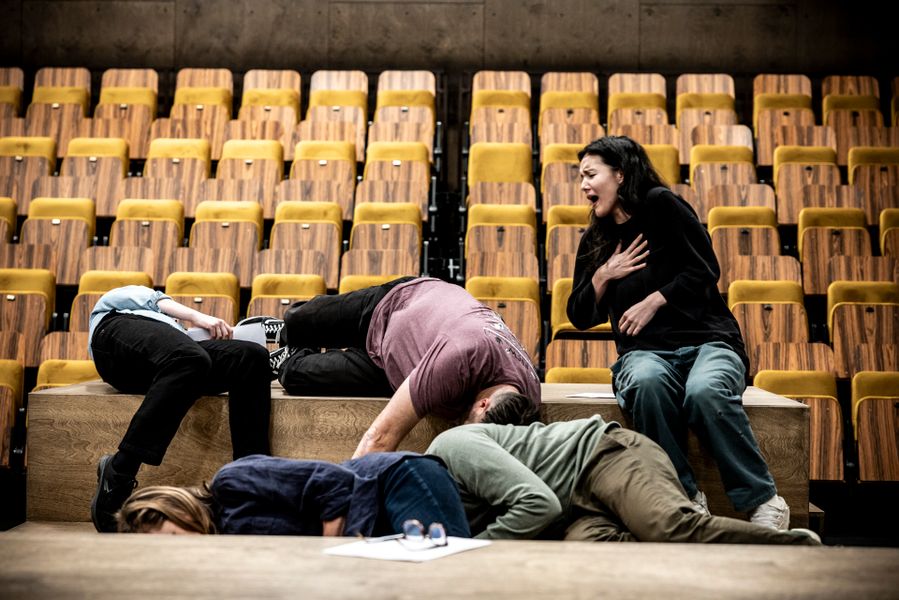
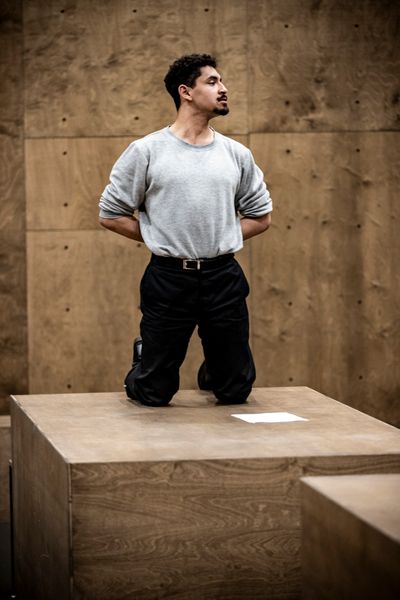
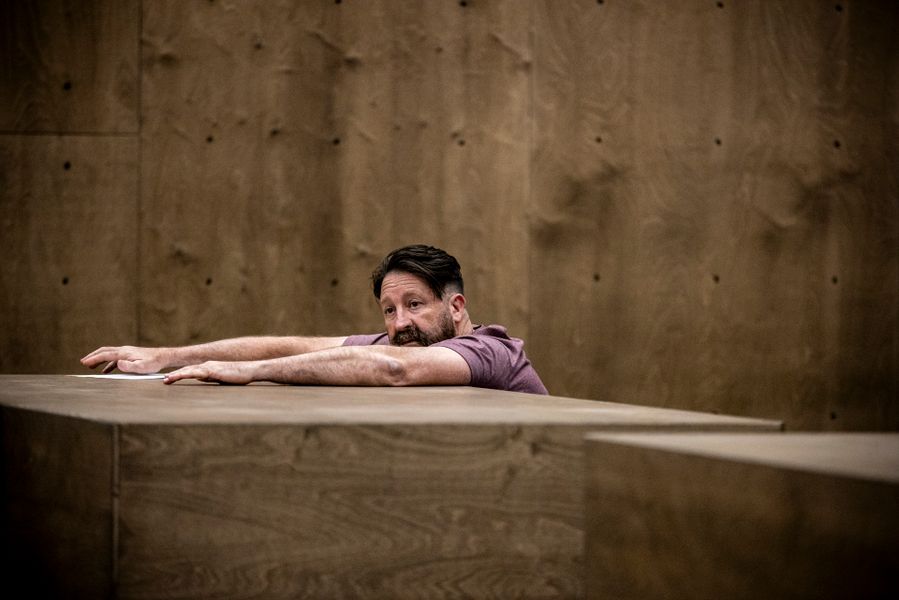
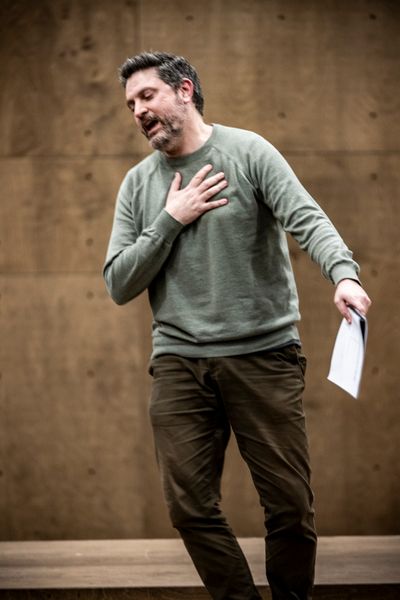
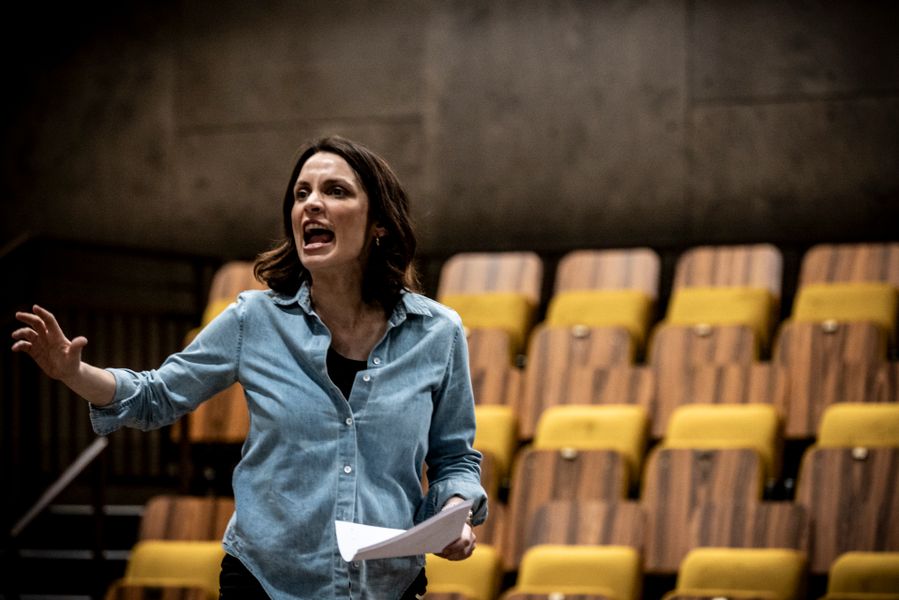
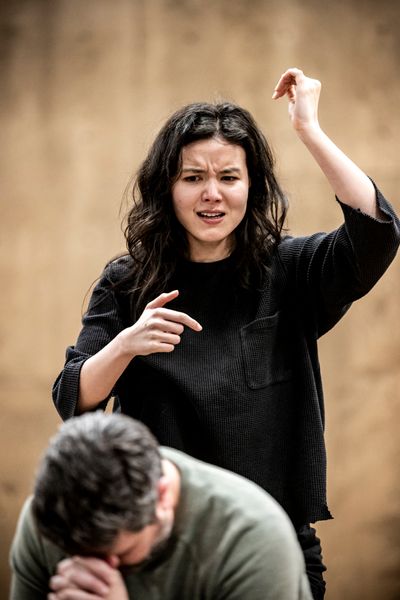
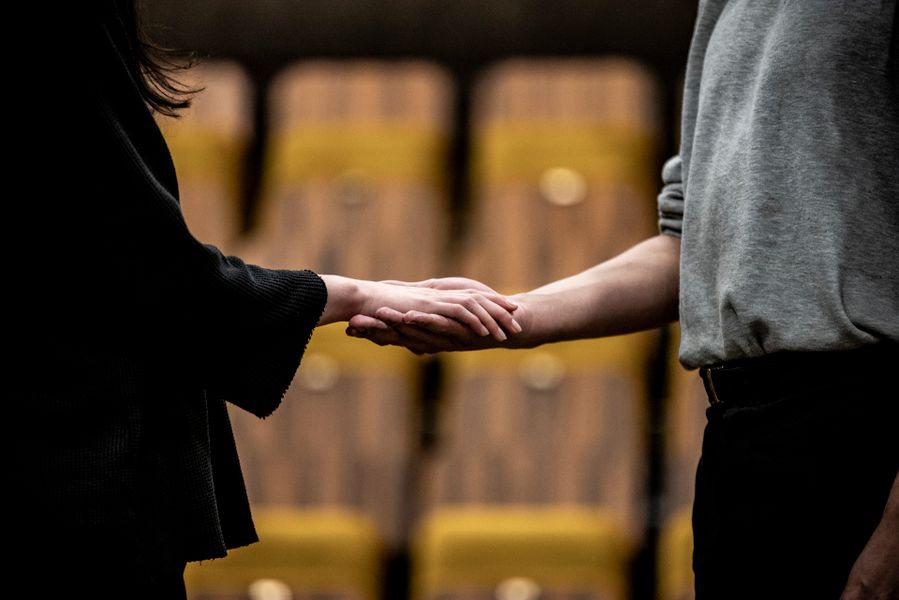
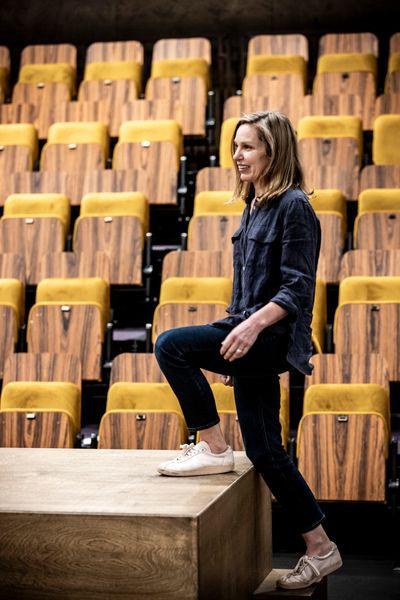
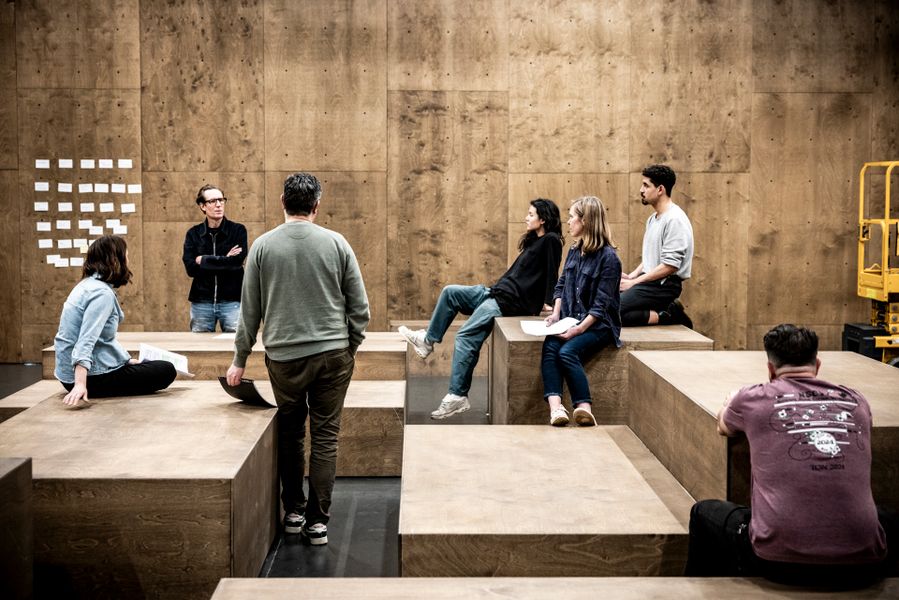


Sit down with Peter Evans, Artistic Director of Bell Shakespeare and Director of In A Nutshell: The Poetry of Violence, as he answers common questions about the production ahead of it's Sydney opening on Wednesday 4 September.
What is in a Nutshell?
After 90 minutes of In A Nutshell: The Poetry of Violence, we’ll all know what it is.
On one level, it is designed as an introduction for people where we present a smattering of scenes throughout Shakespeare’s writing with me contextualising and making little comments about the writing and some of the common themes and things Shakespeare is interested in. Which works perfectly for people who are Shakespeare-curious.
On another level, this production is perfect for Shakespeare aficionados who are already into his work. This show goes deeper into some of Shakespeare’s concerns, with content along the lines of “You may know Macbeth quite well, but Shakespeare does something quite similar in his earlier writing…” etc.
When we staged In A Nutshell in 2022 it was very introductory. This time I still want it to work as an introductory piece, but the focus is much narrower. We’re taking one of Shakespeare’s concerns, one of the things Shakespeare is best known for — violence, and lots of death — and putting that under the microscope a little bit. One of the focuses of this iteration is to say, with a couple of exceptions, that Shakespeare’s use of violence is not gratuitous. That when he looks at anything he looks at it deeply, and that violence is considered whenever he uses it.
Why ‘The Poetry of Violence’? Does that mean the show will be really violent?
Not necessarily! We take a couple of different approaches to violence in this show. We look at the fact that whenever there is violence in the plays Shakespeare shows the cost of that — the cost of that on the individual or the cost of that on a society. That violence begets violence.
The show itself isn't particularly violent, because its focus is on the poetry. One of the interesting things about Shakespeare's writing is that it is incredibly beautiful even when he is describing horrendous things, which makes it complicated. Our relationship with the violence, as the people making it and artists involved, is also complicated — as is what it means to go to a play or to stage a play that has lots of violence in it.
Now, I'm not going to answer these questions, but I am going to pose them. What is violence? What does it mean? What does it mean when these scenes are so incredibly exhilarating, but if you stop to think about it, they are so horrific. That's a paradox that I find quite interesting.
What makes this year’s iteration different from the 2022 In A Nutshell? Why should 2022 patrons attend this year’s iteration?
I think the shift in focus will be interesting for patrons who attended in 2022. The last In A Nutshell sort of had five chapters. This time we are taking a chapter and really digging into it.
I suspect many patrons who joined us in 2022 just want more of the same. They said back then "This is really interesting, I'd like you to take me through more of this stuff". Which is exactly what we're going to do.
This year's production has a whole bunch of new scenes from different plays. And this one, although it does have some famous bits in it, has got lots of stuff that you may not have spent much time with. So, it will be opening doors on other things, I hope.
If you are someone that has never seen a Shakespeare production before, would you recommend this show to them, as an introduction to Shakespeare?
Yes, absolutely. Basically, I am just going to hold your hand and lead you through lots of different plays, lots of different ideas and lots of the things that Shakespeare does as a writer. You'll definitely come out of it with a feeling that the work is not as complicated or as difficult as you thought. In fact, part of this show's objective is to give you a way to enter this world that will really demystify it.
There will be a couple of scenes from Henry VI, some Macbeth of course, and some Hamlet. There's quite a bit from the Roman plays, so Titus Andronicus, Julius Caesar and Coriolanus. Then there will be a little bit of Henry V as well, some Much Ado About Nothing in there for something different, and then there's a little bit of Romeo and Juliet. There are also a few little sequences where we look at insults and blasphemous lines from a smattering of all sorts of plays.
We’ve just announced the cast for IAN, including Nigel Poulton who doesn’t often join us on stage. What are your motivations behind the casting decisions?
That's right, Nigel hasn't done much acting with us, we usually engage with him as an Intimacy Coordinator and Fight Director. As such, we thought it would be fun to get him to talk about fight choreography and the embedded code in things that feel a little archaic to us, like duels. He's going to unpack those and explain to people what's going on, which will be interesting. We’ve been working together for so many years, so it will be fun to have him as part of this, especially since his regular work is so focused on the meaning behind violence.
And then the rest of the casting is just to get a mixture of some of our favourite actors. Madeline is the only actor we haven't cast in a previous production, but she is a recent graduate from NIDA and a face we hope becomes very familiar over the next few years.
Darius is still fresh to Bell but has just come off the King Lear season, so it felt like it would be fun to work with him. Lucy and Jess are some of my favourite people who have done lots with us, and who will be fantastic in feminine roles like Queen Margaret and Volumnia.
And then there's James who we know and love quite well.
What do you hope audience members take away from this production?
Well, there's the obvious takeaway of what violence inside storytelling really means, and what role it plays. Which is a moral or ethical question that I think is interesting.
And then I hope people go away thinking about how great a particular part of the show was, or about a fantastic line or fantastic speech. Ultimately, I want them to go away with a new understanding of the way Shakespeare weaves these ideas through lots of different plays. Hopefully, we will have opened Shakespeare up and made people curious about plays they didn't know very well that they may think about further.
The main thing is that I hope people leave and think “I now know much more about Shakespeare and feel much more confident about letting more of his work into my life".
Are there hints in In A Nutshell as to what we can expect for Bell Shakespeare’s 2025 season?
Oh yes, definitely. Next year's season is throughout the show. This is the only hint you will get.
Earlier, you briefly mentioned chapters, and that The Poetry of Violence is one of those. Does that mean there are more chapters for In A Nutshell in the future?
Yes, absolutely. There are millions of versions of this production we could do. We've got two or three that we have kind of talked about and planned already. The possibilities are so endless with this format.
My hope is that we will make one every two years. But we will see.
In A Nutshell: The Poetry of Violence plays in Sydney at The Neilson Nutshell from 4–8 September before travelling to Canberra to play at the Canberra Theatre Centre from 13–14 September. Book your tickets here.








